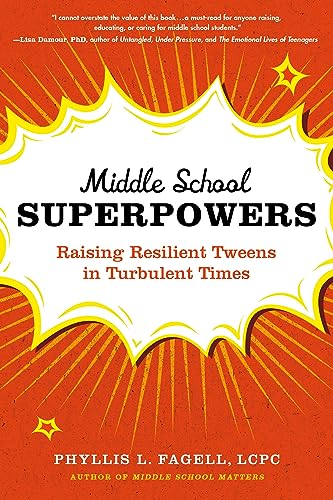
Middle school is when you see so much growth in your child. Their bodies are changing, their brains developing, and their hormones are exploding. It can be a lot for both adolescents and their parents.
It is also a vital time when it comes to building social and emotional skills. In middle school, tweens are often exposed to a new set of people and relationships. It can feel a bit like a roller coaster as new friendships develop and end at a rapid pace.
These adolescents are trying to figure out who they are and who they want to become–and it may change depending upon the day. And their friends have an enormous shape on this.
Parents need to help middle schoolers build healthy friendships
Middle school can be an exciting time for your child, filled with new independence, activities, and opportunities. Unfortunately, middle school can also come with a lot of drama. (Read: Middle School, The Hardest Years of Your Life As A Mom (So Far))
Many adolescents are learning how to manage technology and phone usage. and because many families have different rules, it can cause a lot of unintentional hurt feelings. Social hierarchies start to emerge, and popularity becomes more important. MiddleRomantic feelings start to develop, academic pressure , and tweens become very aware of fitting in and standing out.
This is also the time when kids look to their peers to make sense of their changing world.
That’s why parents need to find the right balance in promoting healthy friendships while nurturing their child’s independence and development.
I noticed a friend shift right away when my son began middle school. He’s athletic and loves sports, so naturally, he began to hang out with other like-minded kids. He also still likes school, so he wanted to challenge himself with honors classes so he was surrounded with other kids who had a desire to learn.
He also had to edit his friendships a little bit. For example, while he’s like a lot of middle schoolers who love to game, some of his buddies want to do that all day long. He’s had to remove himself from some situations and friend groups to meet his needs.
Related: 10 Ways To Build A Strong Relationship With Your Middle Schooler That Lasts
How parents can help their kids navigate middle school friendships
Overall, middle school friendships are a big part of growth, and as parents, we can help guide them through it. Here are a few tips to help:
Talk—a Lot
Communication about healthy relationships is huge, and middle schoolers will still need your guidance on how to maneuver certain situations. You can help them learn to set boundaries with friends, be direct in their needs, and how to say no to peer pressure. You also can talk about what a good friendship looks like and how to identify a toxic relationship.
Share Your Core Values
Middle schoolers begin to have their own set of values, which continue to bloom over time. It’s great to have these conversations with them, too. Sure, drug, sex, and rock and roll are a part of it, but there’s so much more. It’s important to share with your middle schoolers what you deem important regarding academics, romantic relationships, after-school activities, family time, etc. And don’t forget to listen to what they say is important to them as well.
Tech and Screen Time Health
Middle schoolers are emerging in their screen time usage, and many use tech as an entry point to developing friendships. It’s important that you clearly communicate your tech boundaries and how different families may have different rules. It’s also critical to discuss appropriate ways to communicate using tech (for example, how nothing is private when you are texting or online, when you should communicate face-to-face, and how you cannot trust individuals online that you have never met in real-life.) Signing a cell phone contract is also a good idea.
A lot of middle school drama can occur because of tech usage, including online gaming, social media and group texts. This usually works itself out by high school, so parents should stay active and involved during the tween years.
Related: Here Are The Tech Rules You Need To Be Setting For Your Tweens and Teens
Get to Know the Parents
Oftentimes when parents no longer congregate on playgrounds or pick-up lines, it can be tough to get to know your child’s friends and their families. While it can feel awkward reaching out, getting to know the parents of your middle schooler’s friends can be super helpful.
You can be open about your own expectations and hopefully learn if you share common rules and values. You can bounce any concerns off of each other and perhaps even share resources.
Your child will inevitably start spending more and more time away from you, and in the presence of other families, so it’s essential to get to know who they’re spending all of this time with.
Invite Friends Over
It’s always been a goal of mine to be one of the houses where kids want to hang out. This isn’t easy, though, if I’m being honest.
Middle schoolers aren’t necessarily known for being, well, neat—or quiet. My son has had lots of buddies over to bake (messy), to game (surprisingly loud), and to have sleepovers (loud and messy). While I view this as a sacrifice (because as adults, our time is limited), I think it’s worth it because you get to know your child’s friends and be a safe space for them, too.
And trust me, they don’t care what your house looks like. They are just looking for snacks and a place to hang out.
Related: I Love Being “That” House Where Those Messy and Loud Teenagers Hang Out
Encourage Healthy Risk-Taking
Middle schoolers start scooting into the age bracket where they search for thrills. It’s inevitable and part of their adolescent brain’s wiring.
While pushing limits can give parents a few grey hairs, healthy risk-taking can actually help your tween/teen develop into a more confident and capable adult.
One idea is to start giving them healthy choices they can do with their friends. Instead of them experimenting with drugs and alcohol, you can consider taking their buddies on a big backpacking trip, mountain biking, snowboarding, rock climbing, and more. Taking risks is fun, but learning which ones are healthy takes some guidance. Because everything is more fun with a friend, this is a great way for middle schoolers to develop trust, team-building, and other important life skills.
Teaching the Importance of Boundaries
Boundaries are hard at any age, so it’s important to teach them at a young age that having your own space and time is vital for strong mental health. I have seen my son kindly say no when a buddy has knocked on the door to play or hang out. If he needs some time to veg alone, he takes it.
There have also been times he’s simply come home from hanging with buddies who went through a phase of not treating him great. As a parent, it’s difficult to see them upset, but in the long run, it’s encouraging to see them learn to set boundaries for themselves. It’s an important part of self-care and managing their self-esteem.
Managing Peer Pressure
Talking to middle schoolers about peer pressure is crucial. And honestly, I’ve found that it’s not as awkward as I thought.
The critical thing to remember is this: your child can get information from you, or they can get it from their friends and the Internet. You get to choose.
Being open about your expectations is vital. Parents need to talk with them about all of the things (not all at once, though). Technology, sex, drugs, alcohol—all of it—these conversations need to happen in the home because if they’re not, they’ll happen with their friends, and you will not know if the information is accurate or safe.
Don’t fret, though, because often, these conversations will happen organically. Middle school will offer a lot of opportunities.
Looking for more information on raising middle schoolers?
We love this book from Phyllis Fagell, Middle School Superpowers, Raising Resilient Tweens in Turbulent Times.

Middle school parenting can be hard, but you don’t have to do it alone. Here are some posts you may find useful.
Why This Mom Is Not Sad For Middle School To Be Over
Why You Shouldn’t Let Your Middle School Kids Have Social Media
To My Eighth Grade Boy In Your Last Year of Middle School
*This post may contain affiliate links where we earn a small commission for products purchased from our site.






Leave a Comment